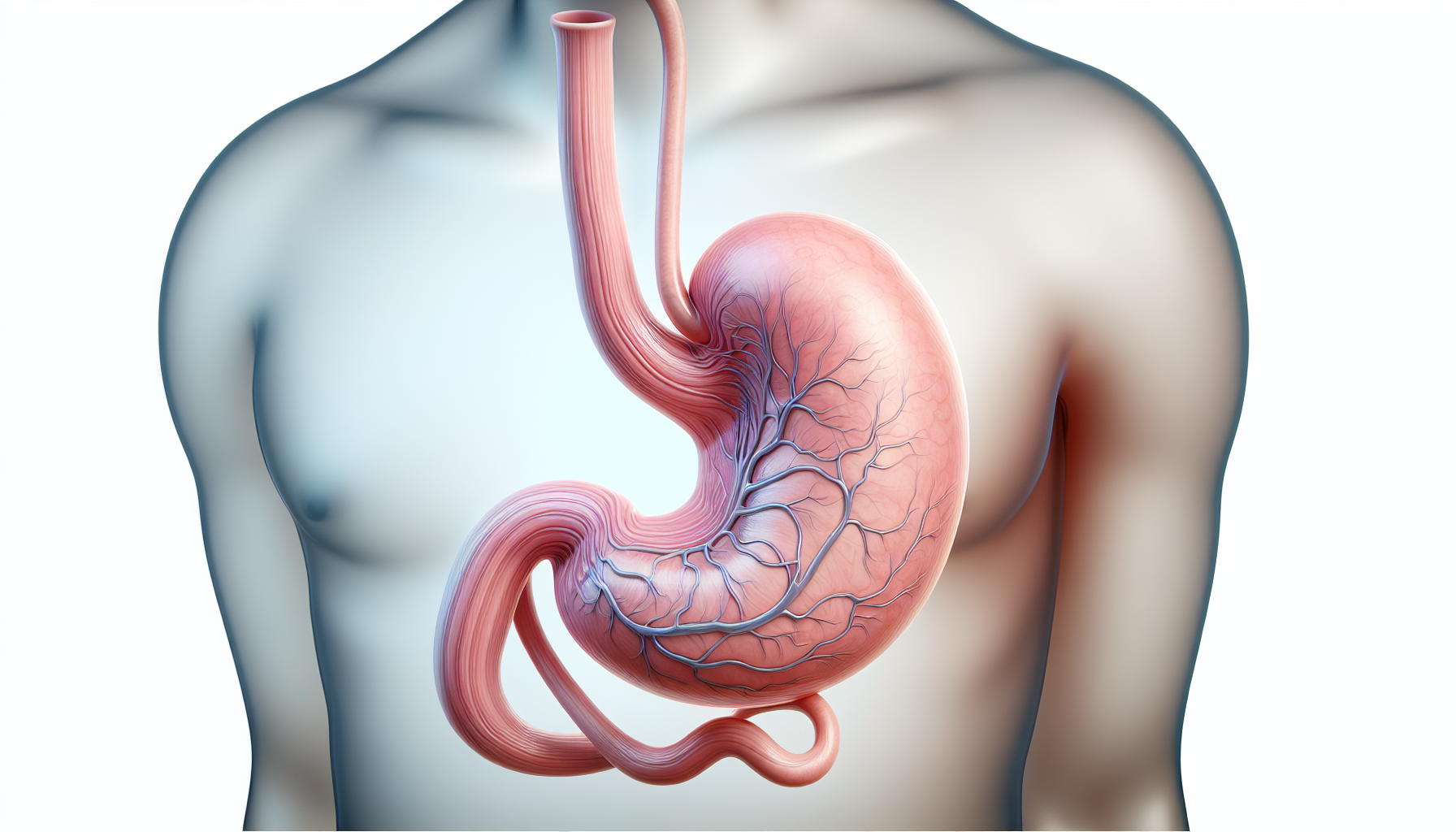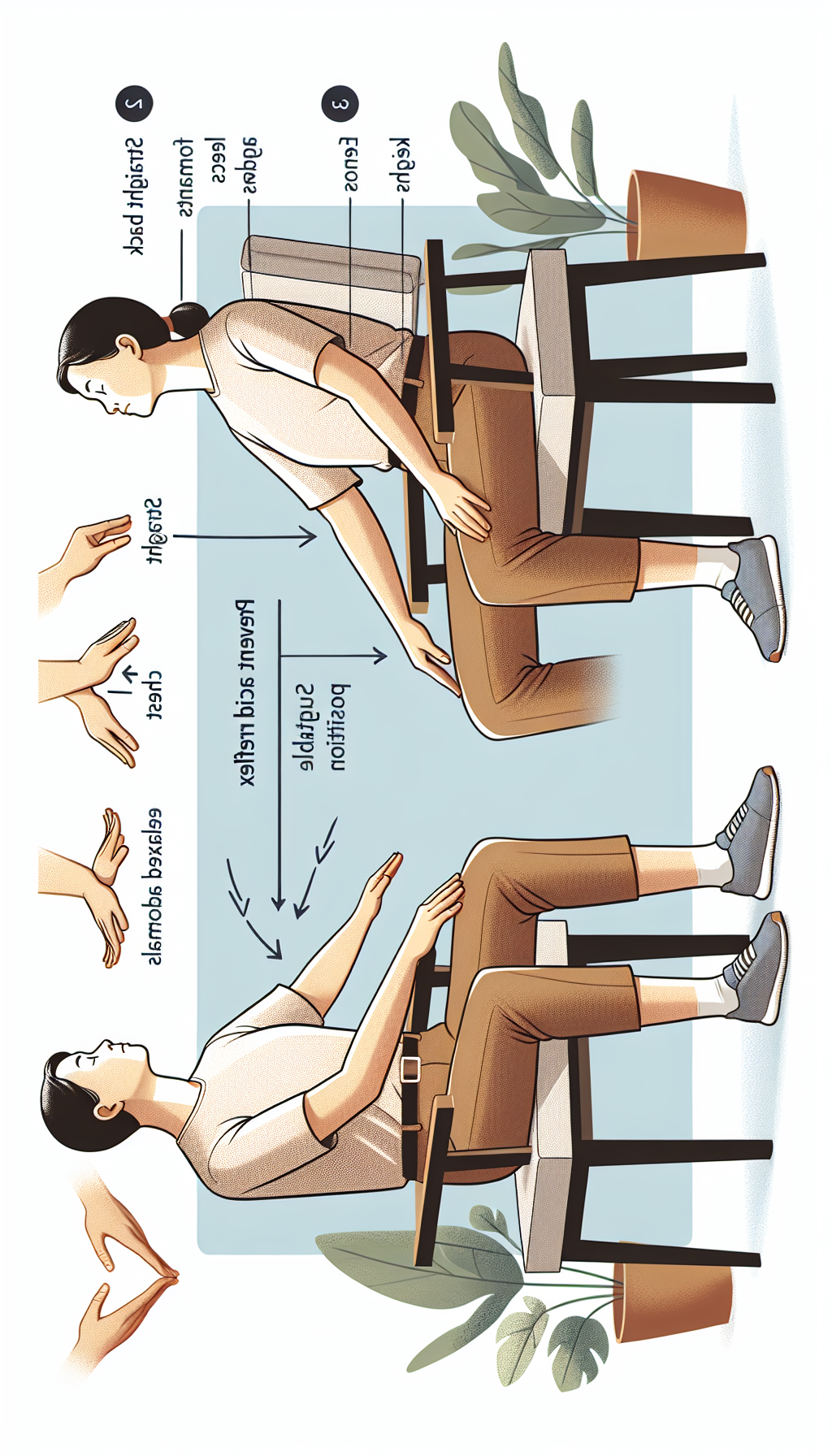Gastroesophageal Reflux Disease (GERD) is a common digestive disorder that affects millions of people worldwide. It’s characterized by the backflow of stomach acids into the esophagus, which can lead to a range of uncomfortable symptoms such as heartburn, chest pain, and regurgitation. While medication is often prescribed to manage the condition, lifestyle changes can play a crucial role in alleviating symptoms and improving quality of life.
Understanding GERD and Its Impact
Before delving into how lifestyle modifications can help, it is important to understand what GERD is and why it occurs. The condition is primarily due to a dysfunction of the lower esophageal sphincter (LES), a valve-like muscle that separates the stomach from the esophagus. When the LES fails to close properly or opens too often, stomach acid can escape and irritate the esophageal lining.
This acid reflux not only causes discomfort but can also lead to more serious health issues if left unchecked. Chronic inflammation of the esophagus may result in complications such as esophagitis, Barrett’s esophagus, and even esophageal cancer. Moreover, GERD can significantly impinge on one’s daily activities and overall well-being.
Dietary Adjustments to Reduce Symptoms
One of the most effective ways to manage GERD is through dietary adjustments. Certain foods and beverages are known to trigger reflux symptoms, including spicy foods, fatty foods, chocolate, caffeine, alcohol, and carbonated drinks. By identifying and eliminating these triggers, individuals can significantly reduce the frequency and severity of their symptoms.
Additionally, adopting a diet that supports digestive health can be beneficial. This involves eating smaller, more frequent meals instead of large portions, which can put less pressure on the LES. Including fiber-rich foods, such as whole grains, fruits, and vegetables, can also help, as they promote a healthy digestive system and prevent constipation, which can exacerbate reflux.
Weight Management and Physical Activity
Excess body weight is a known risk factor for GERD, as it can increase abdominal pressure and cause the LES to malfunction. Therefore, achieving and maintaining a healthy weight through a balanced diet and regular physical activity is essential. Not only does this reduce reflux symptoms, but it also enhances overall health. For individuals seeking guidance on incorporating fitness into their routine, resources are available on fitness that can offer helpful advice and strategies.
Engaging in moderate exercise can also improve digestive health, but it’s important to avoid high-impact activities immediately after eating, as they can trigger reflux. Instead, activities such as walking, cycling, or yoga can be beneficial when performed at the right time.
The Role of Sleep and Stress Management
Sleep position can influence GERD symptoms. Elevating the head of the bed and sleeping on the left side are recommended to minimize nighttime reflux. This is because these positions help prevent stomach acid from traveling back into the esophagus.
Stress is another factor that can aggravate GERD. High stress levels can lead to behaviors that trigger reflux, such as overeating, smoking, or consuming alcohol. Managing stress through relaxation techniques, adequate sleep, and other methods is therefore crucial in controlling GERD symptoms. Engaging in practices that promote brain health, such as mindfulness meditation or deep-breathing exercises, can help manage stress effectively.
Avoiding Harmful Habits
Smoking and excessive alcohol consumption are detrimental to LES function. Smoking reduces saliva production – a natural antacid – and encourages the stomach to secrete more acid. Alcohol, on the other hand, can relax the LES and irritate the esophagus. Quitting smoking and limiting alcohol intake are essential steps in managing GERD.
Clothing and Posture
Tight clothing can constrict the stomach and push acid into the esophagus. Opting for loose-fitting attire can help relieve this pressure. Additionally, maintaining good posture, especially after meals, can prevent the stomach contents from pressing against the LES.
External Resources for Further Support
Several external resources can provide additional support and information on managing GERD through lifestyle changes:
- The National Institute of Diabetes and Digestive and Kidney Diseases offers a comprehensive guide on eating, diet, and nutrition for GERD.
- The Mayo Clinic provides insights into lifestyle changes to improve GERD symptoms.
- The International Foundation for Gastrointestinal Disorders has a section dedicated to tips on controlling GERD.
Conclusion
Lifestyle changes have a profound impact on the management of GERD symptoms. By adjusting one’s diet, maintaining a healthy weight, managing stress, avoiding harmful habits, and considering sleep and clothing choices, individuals can experience significant relief from the discomfort associated with acid reflux. For more detailed strategies on managing digestive health issues, consider reading articles on strategies for managing IBS and addressing acid reflux through dietary adjustments.
Remember, it’s important to consult with a healthcare provider before making any significant changes to your lifestyle, especially if you have a chronic health condition like GERD. With the right approach and support, it is possible to control GERD symptoms and lead a healthier, more comfortable life.



